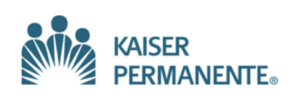Kaiser Permanente’s commitment to equity supports Latino-owned businesses in recovering from the pandemic.
 By Kaiser Permanente
By Kaiser Permanente
Andrea Cervantes, who runs her family’s janitorial business in Maryland, became worried at the end of March 2020 as the COVID-19 pandemic shut down large swaths of the U.S. economy. She and her employees were not considered essential workers. In order to keep her family’s livelihood afloat, she needed quick help.
Cervantes contacted the Latino Economic Development Center in Washington, D.C., hoping that the organization could provide assistance to help her keep her business going during the crisis. “I contacted LEDC and received email responses and a phone call that day … it was a lifesaver,” said Medina. “They made the process easy and I received funding quickly. There are no words to thank them.”
Latino entrepreneurs like Medina are major drivers of the U.S. economy. Prior to 2020, Latino-owned businesses were the fastest-growing among America’s independent small businesses, contributing 4% to the U.S. gross domestic product. However, these business owners and their communities have been disproportionately impacted by COVID-19. Within the first few months of the pandemic, nearly 1 in 5 Latino and immigrant workers in the United States had lost their jobs, and by October 2020 nearly 5 million members of the Latino community were on the verge of bankruptcy.
To connect business owners with the resources they need to continue serving their communities, Kaiser Permanente is broadening its work with Latino-focused groups, working with organizations like the National Association for Latino Community Asset Builders, the hub of a national network of more than 130 mission-driven organizations in 40 states, Washington, D.C., and Puerto Rico with a mission to advance economic mobility in Latino communities. The national collaboration includes a $4 million grant by Kaiser Permanente to NALCAB to help strengthen this network of community organizations.
NALCAB has selected 39 community organizations, including LEDC, across all Kaiser Permanente markets to receive support from the funding, potentially reaching nearly 12,000 entrepreneurs. Small-business owners and entrepreneurs stand to benefit from Kaiser Permanente’s contribution through a broad network of bolstered partnerships. A combination of flexible funding, loan support, and technical assistance will focus on supporting business owners of color to relaunch, recover, and grow.
“LEDC is thrilled to see Kaiser Permanente and NALCAB collaborating to extend their reach and impact in communities across the nation. Both organizations have been critical thought and funding partners in the work that we do,” said Marla Bilonick, president and CEO at NALCAB, who previously served as executive director and CEO at LEDC. “We treasure relationships with partners that engage us in dialogue and enable us to roll out cutting-edge, innovative programming. This partnership stands to bring about enormous positive change in the neighborhoods we care most about.”
Grants have also been used to support the creation of a permanent and long-term loan guarantee pool for NALCAB member organizations across the country to enable them to lend to entrepreneurs in their communities. As that money is paid back, it continues to be used, creating a cycle of lending that reduces barriers to financial success for small-business owners.
District Bridges, a community organization based in Washington, D.C., which supports over 900 small businesses, is planning to use its grant money to help Spanish-speaking businesses close the digital divide. This work builds on the outreach and assistance District Bridges has provided throughout the pandemic, which includes helping business owners complete microgrant applications by converting their handwritten financial records into spreadsheets, gathering additional required documentation, and submitting applications. “These businesses will benefit from understanding the power of having a digital presence and being able to market their own services and improve communication with old and new clients,” said Carolina Buitrago, District Bridges program director.
“We are proud to enable this crucial work with Latino-owned businesses that have traditionally been marginalized even in the best conditions and are suffering more than most in the pandemic,” said Stephanie Ledesma, interim senior vice president of community health programs for Kaiser Permanente. “This economic support is a key part of Kaiser Permanente’s expanded efforts to combat racial injustice and inequity.”
The action is part of the next significant step Kaiser Permanente is taking to strengthen equitable economic opportunity, prioritizing communities that have endured decades of underinvestment and supporting them in overcoming systemic and structural economic disadvantages.
About Kaiser Permanente — Kaiser Permanente is committed to helping shape the future of health care. We are recognized as one of America’s leading health care providers and nonprofit health plans. Founded in 1945, Kaiser Permanente has a mission to provide high-quality, affordable health care services and to improve the health of our members and the communities we serve. We currently serve 12.5 million members in 8 states and the District of Columbia. Care for members and patients is focused on their total health and guided by their personal Permanente Medical Group physicians, specialists, and team of caregivers. Our expert and caring medical teams are empowered and supported by industry-leading technology advances and tools for health promotion, disease prevention, state-of-the-art care delivery and world-class chronic disease management. Kaiser Permanente is dedicated to care innovations, clinical research, health education, and the support of community health. For more information, go to about.kp.org
